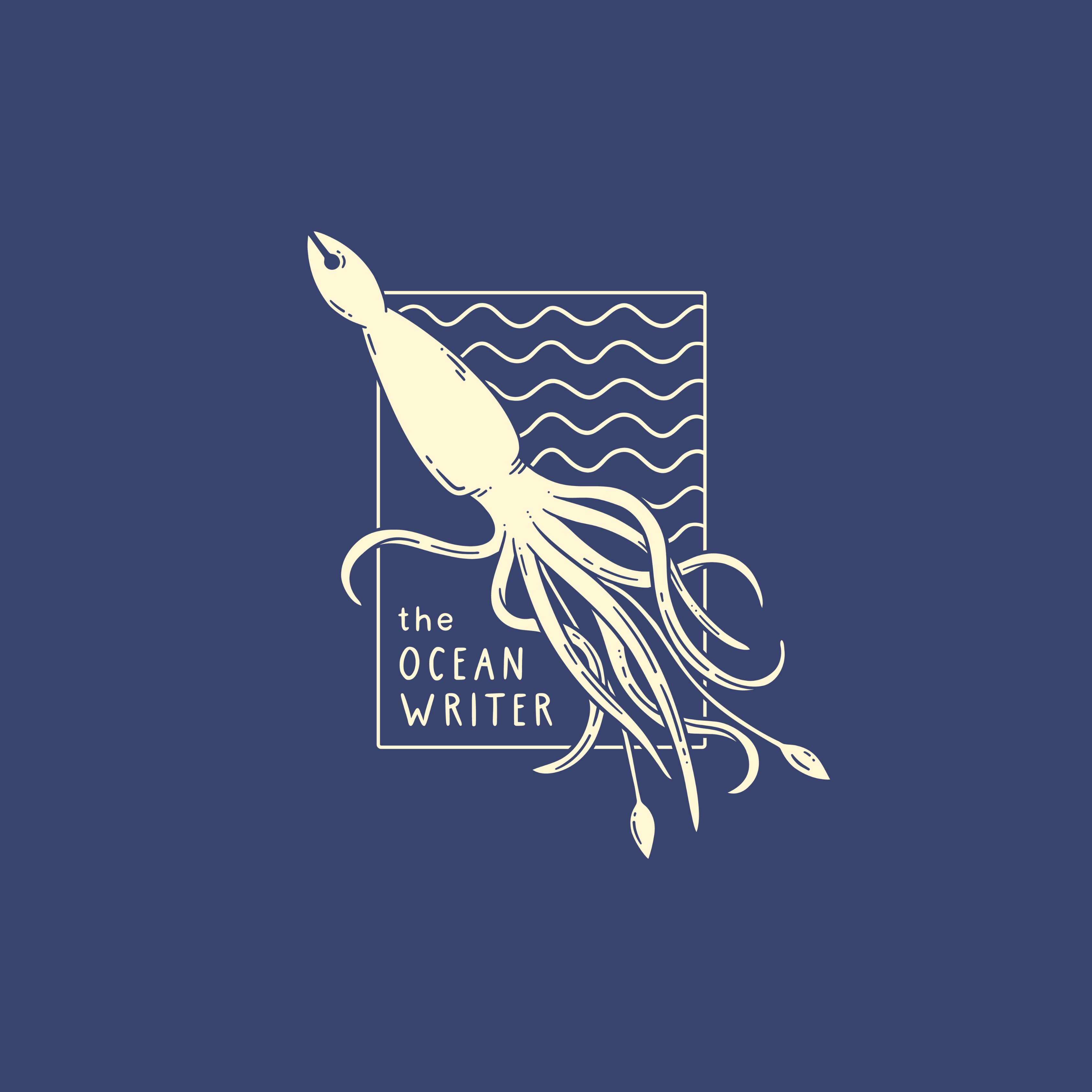When you think about it, writing about the ocean is a fairly big niche: the ocean covers most of our planet and is full of different animals. So it makes sense that I have 'micro-beats' within my wider ocean niche. One of those is cetaceans. That is: whales, dolphins and porpoises. I love these intelligent and playful animals so I've written about them quite a lot. Here are some of the articles I've pulled together as a whale writer. Enjoy!
Humpback whale sex - Scientific American
There's always something really special about getting a new byline in a publication you've wanted to work with. Especially when the news is of the first ever recorded instance of sex between humpback whales. My debut for SciAm was just that.
Solar storms - Scientific American
How do solar storms affect migratory animals? I spoke to experts to find out for Scientific American.
Whale larynx - Nat Geo
I never knew I would know so much about the anatomy of a baleen whale's larynx... but that's life as an ocean writer, I guess! In this article for Nat Geo, I wrote about a new discovery into baleen whales’ anatomy that helps them sing underwater without drowning.
Orcas targeting boats - Live Science
Scientists suggest orcas in the Iberian Peninsula may be ramming sailboats to hone their hunting skills, using yachts as target practice.
Orcas vs sharks - Live Science
Are we underestimating how often orcas are eating sharks? I took a dive into the evidence so far for Live Science.
Humpback rescue - BBC Wildlife
Rescuers spent two days freeing a humpback that had become trapped in fishing gear. Thankfully, they managed to successfully release the whale from the ropes and buoys so it could swim free again. A nice uplifting one for BBC Wildlife.
Whale tagging in Australia - BBC Wildlife
Researchers placed cameras on 10 humpback whales to uncover secrets of their migration along Australia's east coast – I covered the results for BBC Wildlife.
White whale in Tonga – BBC Wildlife
Some epic footage I covered for BBC Wildlife: a white baby humpback. Experts are concerned about potential challenges ahead for the young whale.
Rare whale in Ireland - BBC Countryfile
Wow. A critically endangered North Atlantic right whale was spotted off Ireland’s coast—the first confirmed sighting in 114 years. I wrote up the story for BBC Countryfile.
Sperm whale family – BBC Wildlife
I wrote about a heartwarming drone footage of a family of sperm whales playing and swimming together over the Hellenic Trench in the Mediterranean. Another of my stories for BBC Wildlife.
Flukeless humpback – BBC Wildlife
This one was so sad. For BBC Wildlife, I covered the shocking sight of a humpback whale swimming down the Washington coast without its tail, likely a victim of long-term entanglement in fishing gear.
Whale watching – ExplorEarth
I explored the unique bond between whales and humans and why getting whale-watching experiences right is important for ExplorEarth
North Atlantic right whale calf - BBC Wildlife
Lovely to have the opportunity to write about this precious calf sighting. There are only around 360 North Atlantic right whales left on the planet, so it's really special to see a new mom and calf pair!
Baby orca - BBC Wildlife
When a pilot saw a baby orca seen in Western Australia (so cute!), of course I wanted to share the cool news. This is the first baby they've seen at Ningaloo in years so it’s really special.
Whale alphabet - BBC Wildlife
A, B, C...etacean. Whales might have their own alphabet! Researchers have used AI to decode sperm whale codas and might have found a phonetic alphabet. Cool story to write about for BBC Wildlife Magazine.
Shrinking right whales - Live Science
North Atlantic right whales are critically endangered. They're also shrinking... & this could have worrying consequences for the population. I covered the story for Live Science.
Shark vs orca - Live Science
Think sharks are the ocean's apex predator? Maybe think again...? A single orca can take down a great white shark and rip out its liver (mmm... nutritious!). Really interesting one to write about for Live Science.
Collecting orca’s breath - BBC Wildlife
This groundbreaking research could unlock crucial insights into the health of a small orca population off North America’s west coast. I wrote about how these samples might shape future conservation efforts for BBC Wildlife.
Orca rainbow - BBC Wildlife
For BBC Wildlife, I wrote about an unforgettable moment when a wild orca surprised whale watchers off the coast of San Diego, creating a stunning rainbow with its movements near the US-Mexico border.
Biotwang mystery solved - Scientific Americany
After 10 years, scientists finally uncovered the source of the mysterious "biotwang" sound first heard echoing through the Mariana Trench. I had the scoop for Scientific American.
Slow down - National Geographic
North Atlantic right whales are having a bit of a **** time right now. There are fewer than 400 individuals left and speeding boats and fishing could wipe them out altogether. A sad but important story I wrote for Nat Geo.
Kelping - National Geographic
I must admit this was a really fun one to write. For Nat Geo, I wrote about the 'kelping' phenomenon - when whales wear seaweed like a hat - how it's more common than previously thought and what might really be going on.
Burping baby humpbacks – BBC Wildlife
Modern technology is helping us make so many new discoveries. Like this footage of a baby humpback whale burping, barking and snorting to tell mum it’s hungry. I wrote about it for BBC Wildlife.
School trip surprise - BBC Countryfile
This must have been amazing to see. I wrote about a very special school trip sighting of humpback whales for BBC Countryfile.
Mass stranding - BBC Wildlife
Sometimes I have to write about really sad stories and this was one of them. For BBC Wildlife, I covered the mass stranding of 77 pilot whales in Orkney.
Pilot whale stranding - BBC Countryfile
Another piece on the sad mass pilot whale stranding, this time for BBC Countryfile.
World’s rarest whale - BBC Wildlife
Another fun story for BBC Wildlife. I wrote about the rare spade-toothed whale that washed up on a New Zealand beach and why it was stored in a giant fridge.
Defensive defecation - BBC Wildlife
The great thing about having a niche is you get emails from editors saying things like Ummm, we really need someone to write about whale poo so obviously we thought of you. So, here we are... A fun & intriguing one for BBC Wildlife Magazine.
Unusual mortality events - Nat Geo
What's going on with mass whale strandings? Could it be anything to do with offshore wind? I spoke to some scientists to find out for Nat Geo.
Whale disposal - BBC Wildlife
How do you dispose of a dead whale? Current options include exploding it (for real) or sending it to landfill. But scientists had the opportunity to track a carcass that they'd towed back out to sea - is this a better method? More in my article for BBC Wildlife Magazine.
Isle of Lewis strandings - Guardian
This was a really tough one to write but I hope it raises awareness of the amazing efforts of the BDMLR volunteers in Scotland who battled against the clock to save 55 stranded pilot whales.
Marine life rescue - Reader's Digest
"What would I do if I found a stranded porpoise, dolphin or whale on my beach walk?", you ask? Wonder no more...! Here are some top tips I wrote for Reader's Digest on what you should - and shouldn't! - do.
Whaling in Japan - National Geographic
So depressing that countries are making new commitments to kill whales. Earlier this year, Japan announced it would kill fin whales, which are already vulnerable to extinction. I covered the story for BBC Wildlife.
Busting myths about whales - National Geographic
Ever wondered what's in that spout that comes out of a whales' blowhole when the come to the surface? ???? It's not (just) water... This was one of my early articles for Nat Geo but still one I'm really fond of.
Dolphin friendships - VICE
it's amazing how much we're still learning about the ocean. A while back, scientists discovered that bottlenose dolphins can recognise their friends through the taste of their urine. I found this a fascinating paper to write about for VICE. And, no, I'm not taking the p***!
Stranded sperm whales - Inkcap Journal
When you think of marine conservation, you might conjure up an image of warm waters lapping white sandy shores. But it can take place at any time and in all weathers. As a trained marine mammal medic, I was intrigued by this account of a sperm whale stranding one Christmas Eve in the UK. I covered the story for Inkcap Journal.
CSI of the Sea - Fodors
Meet the CSI of the Sea in this article I wrote about the guy trying to solve a string of mysterious deaths off the coast of the UK...
Swallowed by a whale - National Geographic
Throwback to my first ever article with Nat Geo. Basically, I got really cross about a story going viral at the time where a fisherman had allegedly been swallowed by a humpback whale. Spoiler: he somehow ended up in its mouth, sure, but he wasn't 'swallowed'. So I chatted to a few scientists to get the lowdown on whether a whale could ever swallow a human. Enjoy!
Stranded whales - Footprint magazine
Do you know what you'd do if you came across a stranded whale, dolphin or porpoise? Your action could save their life. But, remember, trying to put it back in the water could do more harm than good. I walked Footprint magazine through what you should do...
Dolphins and manatees - Live Science
For Live Science, I covered a new study which documented dolphins acting 'like jerks' and attacking baby manatees. Yikes.
Beached whales - National Geographic
If you've ever wondered why a whale might become beached, check out my piece for Nat Geo exploring the many different reasons a whale might find itself where it's not supposed to be... on land.




![Clean-Creatives-Seal[BLACK] Black rosette with white text saying Clean Creatives approved](https://melissahobson.co.uk/wp-content/uploads/brizy/imgs/Clean-Creatives-SealBLACK-91x91x0x4x91x82x1711897749.png)




